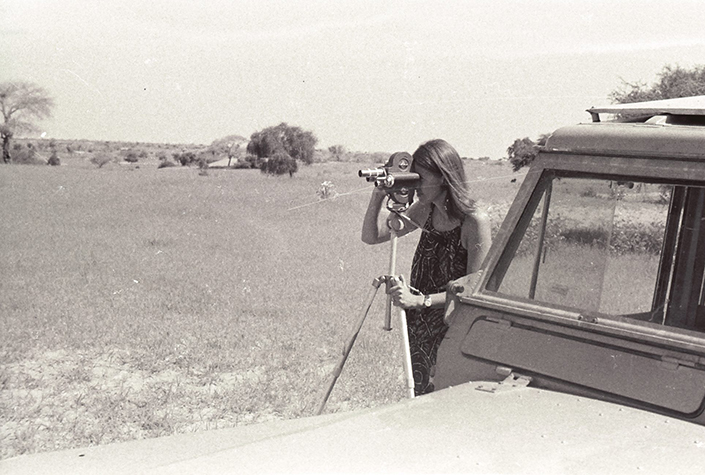Lisbet Holtedahl
Fri, 31-May-19 10:00 AM

Anthropological filmmaking: Lessons learned
As young novice in Anthropology in the field, I made drawings of people and asked children to do the same thing; I also took pictures and shot 16 mm film material. This was in Eastern Niger 1970. When I went home, I was full of expectations and looked forward to convey all my impressions and images from people’s lives in Niger to people in Norway. I did not at all expect the trouble I got into: however beautiful a woman was on my picture or in my photo, my Norwegian audiences only showed pity.
I met the same challenges that Jean Rouch and Edgar Morin struggled with in their film work during the fifties and sixties. When Rouch screened his film LES MAITRES FOUS, about the Hauka rites in the forest of the Gold Coast in Paris, the French audience interpreted the film in a way that made them think that the Africans were wild and that they behaved like animals. Rouch’s supervisor Marcel Griaule told him not to screen the film in France, and later on, the French authorities prohibited the film.
Edgar Morin has said that documentary films are ‘lying’ and manipulating since they pretend to convey the reality, the truth, which fiction films do not. On the one side, the filmmaker edits his films; on the other, it is the audience itself, which frames his films. (…) In spite of the traps you may fall in, I also learned that visual stories have an unimaginable potential for the building of cross-cultural understanding. Through my entire career, I therefore have continued to struggle and experiment with ways to visualize people’s lives cross-culturally.
In my Masterclass, I want to talk about how I have used my experiences in my anthropological films by relating how my thinking about narrative strategies developed cumulatively from film to film.
The Château
Norway 2018 | 113 min | engl. subtitled
Thu, 30-May-19 07:30 PM
 A portrait of one of the richest Cameroonian industrialists Al Hajji Mohamadou Ousmanou Abbo. Filmed over a period of more than ten years. The red thread of the story is … read more
A portrait of one of the richest Cameroonian industrialists Al Hajji Mohamadou Ousmanou Abbo. Filmed over a period of more than ten years. The red thread of the story is … read more
Wives
Norway 2018 | 85 min | engl. subtitled
Thu, 30-May-19 01:30 PM
Fri, 31-May-19 05:30 PM
 Alhajji Ibrahim Gonji is an Islamic scholar. For 46 years, he has served as judge at the Sultanate of Ngaoundéré in Northern Cameroon. The film follows Alhajji during the last … read more
Alhajji Ibrahim Gonji is an Islamic scholar. For 46 years, he has served as judge at the Sultanate of Ngaoundéré in Northern Cameroon. The film follows Alhajji during the last … read more


